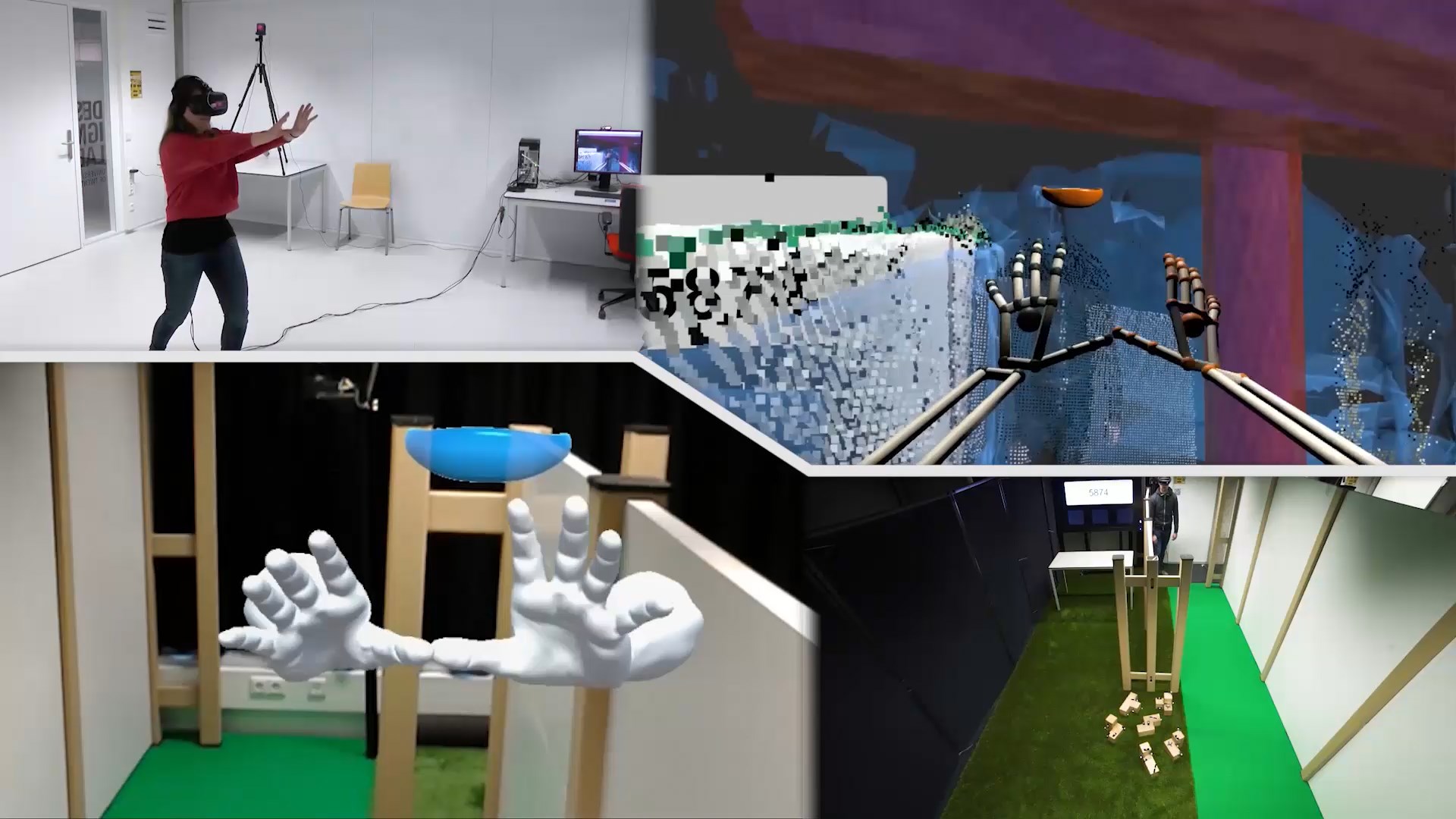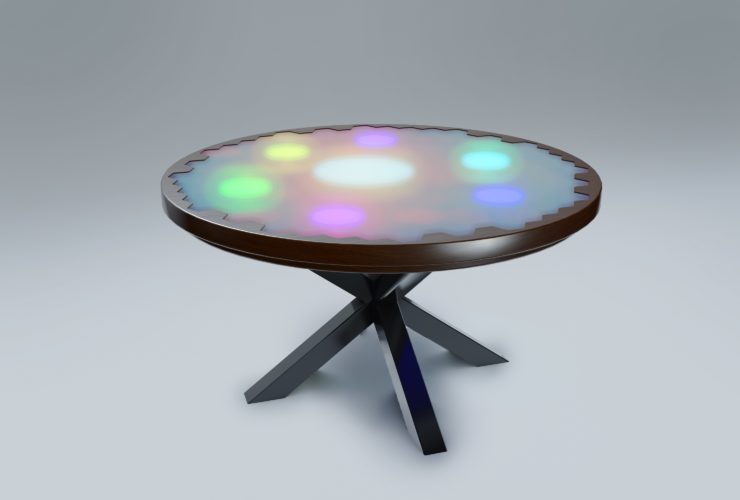OpenIMPRESS is an open immersive telepresence system that I created for my master thesis while studying Human Media Interaction at the University of Twente. It aims to provide an immersive telepresence experience while being easy to set up and accessible for other researchers to use as well.
The system is designed around the following three features that are intended to increase immersion and usability for the users:
Mobility
Being able to navigate a remote environment freely, without being restricted by the location and perspective of the host’s camera
Immersiveness
An immersive view of the remote environment makes you feel like you’re actually there
Embodiment
Make people on location aware of your presence with a virtual augmented reality representation of you, which enables long distance natural interaction.
The visitor is virtually transported to the visitee’s environment using a virtual reality system that displays a virtual representation of the visitee’s surroundings. A virtual embodiment of the visitor is projected into the visitee’s environment using Microsoft’s HoloLens augmented reality glasses. The HoloLens’ low resolution geometrical scan of the environment is used as a basis for the scene that is shown to the visitor, which is extended with more detailed point clouds that are captured with Kinect depth cameras.
A user test was conducted in which was evaluated how the three design aspects contribute to the performance and experience of a telepresence system in a collaborative context. Four system configurations were prepared; one baseline, in which all design features have been implemented and three test configurations from which one of the three design feature’s implementations was removed respectively. Thirty pairs of people participated, which had to perform a series of tasks in an escape room-like setting, once with the baseline configuration and once with one of the test configurations.
We saw that especially view independence and immersive display had positive effects on the performance and the visitor’s feeling of spatial presence. All aspects increased the system’s usability for the visitor. The designed system has been implemented and has been found to be useful by other researchers already as well. Whats more, we have shown that the implemented design features do indeed improve the experience and usability of the system which can be useful for other research in the area of telepresence as well.






